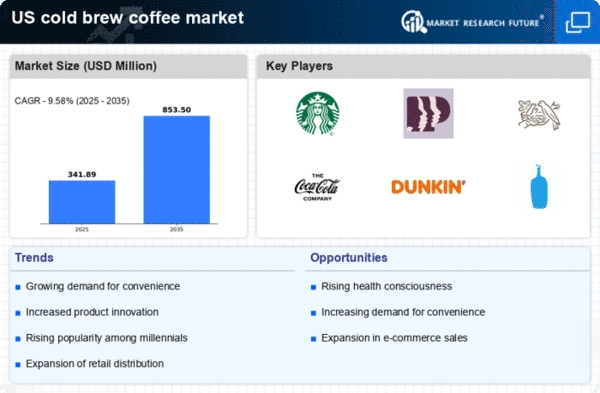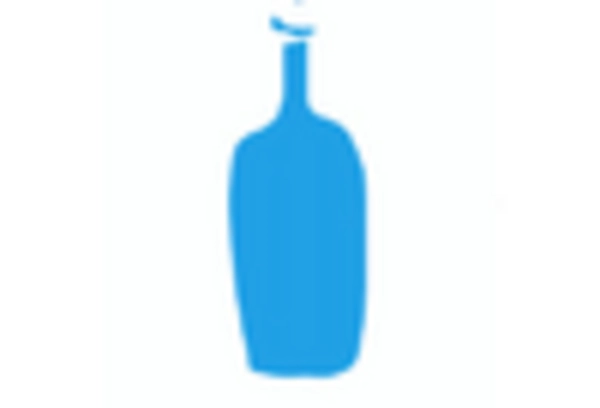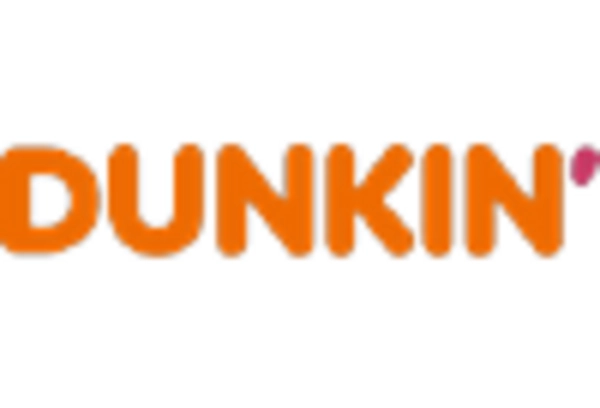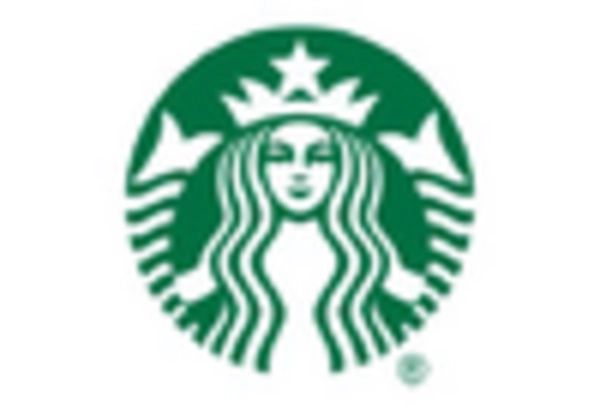Sustainability and Ethical Sourcing
Sustainability is increasingly becoming a focal point for consumers, influencing their purchasing decisions in the cold brew-coffee market. As awareness of environmental issues grows, consumers are more inclined to support brands that prioritize ethical sourcing and sustainable practices. The cold brew-coffee market is responding by adopting eco-friendly packaging and sourcing beans from sustainable farms. This commitment to sustainability resonates particularly well with younger consumers, who are willing to pay a premium for products that align with their values. Recent surveys indicate that nearly 60% of consumers consider sustainability when choosing coffee products, suggesting a strong market potential for brands that emphasize their environmental initiatives. This trend not only enhances brand loyalty but also positions companies favorably in a competitive landscape.
Convenience and On-the-Go Consumption
The fast-paced lifestyle of modern consumers is significantly influencing the cold brew-coffee market. As individuals increasingly seek convenience, ready-to-drink (RTD) cold brew options are gaining traction. These products cater to busy lifestyles, allowing consumers to enjoy their coffee without the need for preparation. The cold brew-coffee market is adapting to this demand by expanding its RTD offerings, which are often available in convenient packaging such as cans and bottles. Recent statistics indicate that RTD coffee beverages, including cold brew, have experienced a growth rate of over 20% in the past year. This trend underscores the importance of convenience in driving sales and attracting a broader consumer base, particularly among working professionals and students.
Health Consciousness and Wellness Trends
The cold brew-coffee market is experiencing a surge in demand driven by an increasing focus on health and wellness among consumers. As individuals become more health-conscious, they are gravitating towards beverages perceived as healthier alternatives. Cold brew coffee, known for its lower acidity compared to traditional coffee, appeals to those seeking a smoother taste and reduced stomach irritation. This trend is particularly pronounced among millennials and Gen Z, who prioritize health benefits in their beverage choices. According to recent data, the cold brew segment has seen a growth rate of approximately 25% annually, indicating a robust shift in consumer preferences. The cold brew-coffee market is thus positioned to capitalize on this health trend, potentially expanding its offerings to include organic and functional ingredients that align with wellness-oriented lifestyles.
E-commerce and Digital Marketing Strategies
The rise of e-commerce is reshaping the cold brew-coffee market, as brands increasingly leverage online platforms to reach consumers. Digital marketing strategies, including social media campaigns and influencer partnerships, are becoming essential tools for engaging potential customers. The cold brew-coffee market is witnessing a shift towards online sales channels, with many brands reporting that e-commerce now accounts for a significant portion of their revenue. Data suggests that online sales of cold brew products have surged by approximately 40% in the last year, highlighting the effectiveness of digital outreach. This trend not only enhances brand visibility but also allows for targeted marketing efforts, ultimately driving growth in the industry.
Innovative Flavor Profiles and Customization
Innovation in flavor profiles is a key driver in the cold brew-coffee market. As consumers seek unique and diverse taste experiences, brands are responding by introducing a variety of flavors, including seasonal and limited-edition offerings. This trend towards customization allows consumers to personalize their beverages, enhancing their overall experience. The cold brew-coffee market is witnessing an increase in the introduction of flavored cold brews, such as vanilla, mocha, and even exotic spices, catering to adventurous palates. Market data suggests that flavored cold brews account for nearly 30% of total sales in the segment, reflecting a strong consumer preference for variety. This emphasis on innovation not only attracts new customers but also encourages repeat purchases, thereby driving growth within the industry.
















